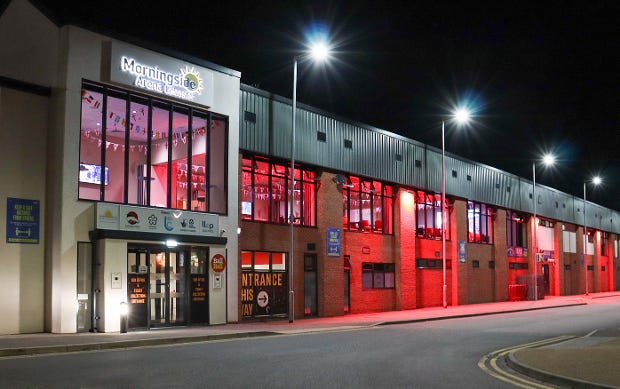Q School is not like normal school. Nobody is counting down the days to see their friends again. This is the stark coalface of snooker: be successful and you get a two-year tour card; miss out and it’s back to slogging around the amateur circuit for another season.
As ever, this year’s entrants are a mix of players who have dropped off the World Snooker Tour, young prospects near the start of their careers and players who have been around a while, with mixed success.
They are all dreaming of claiming one of just eight places available for the professional circuit. There will be far more disappointment than joy come the end of the fortnight.
The strength in depth now in snooker is such that a cut-off at 64th in the rankings seems very harsh. Some good players have fallen off tour – David Grace, Alfie Burden, Stuart Carrington and, after 34 years, Anthony Hamilton to name but a few.
Players around the 60-80 mark are no longer making up the numbers. In recent seasons, several have reached finals and even won tournaments. Yet for much of the year they have in their minds the imminent threat of relegation, adding to the already considerable pressure they are under.
Imagine if the Premier League announced that teams from position 13 down would all be relegated to the Championship? It would seem far too cutthroat – because it would be.
But we are where we are, and for the players heading to the Mattioli Arena in Leicester a tense couple of weeks beckons.
This is less about performance than just finding a way to get the win. It’s also about swallowing pride. Hamilton has been a pro since 1991, now he is plunged into a fight for survival, but the Nottingham man has a good attitude. He won’t think himself above the experience. The venue is a familiar home of qualifying, so in some ways he can just treat it as an extension of that.
Often, the Q school graduates are the players who have just been on the World Snooker Tour, sharp even if they have been relegated. It can sometimes feel like a revolving door for players not quite good enough to stay on but too good to stay off.
It would be nice to think some young players, some new faces, could make it through, but this is a brutally tough system, with the randomness of the draw not helping. Daniel Boyes (England) and Riley Powell (Wales) are two talented juniors but are paired together in round one of the first event.
Cutting the cord after all these years when the sport is in your blood is clearly hard for some. Tony Knowles, world no.2 in the 1980s, turns 70 next month but is giving it another go, as is Dean Reynolds, a twice ranking event runner-up who was once as high as eighth in the rankings.
One point worth raising is the length of the matches. There are hundreds to play in a short space of time, so best of sevens makes sense, but couldn’t the last round be longer?
The WPBSA Q Tour Global Play-Offs award three tour cards and for the last two years their final round has been best of 19 frames. Players consider this a proper test, matches in which there is time to recover from a poor start and where the best player usually wins.
Maybe Q School could make its final round longer. The matches typically are played at 10am with no more snooker that day. Why not extend them given what is on the line?
WST Play and the WST YouTube channel is streaming matches so fans can follow the action. In some ways, it feels like intruding on private grief. There is nothing fun about Q School, but there are rewards for a few, and this is what all the players are clinging on to as they head to Leicester.




I see Jamie Clarke not taking part. He finished rank 66 I think. Maybe they are thinking of extending the tour survival level to that rank as a couple of players in the top 64 might not play next season?